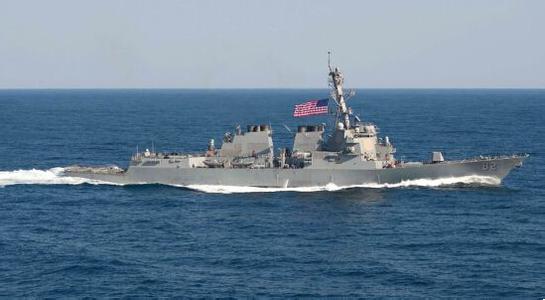

 |
| (File Photo) |
BEIJING, June 30 -- China reaffirmed on Thursday that it will not accept a third party dispute settlement or any solution imposed on China.
Foreign Ministry spokesperson Hong Lei made the remarks at a routine press briefing when asked to comment on the Arbitral Tribunal's claim that it would soon issue the so-called final award of the South China Sea arbitration unilaterally initiated by the Philippines.
Hong reiterated that the Arbitral Tribunal has no jurisdiction over the case nor the subject-matter, and that it should not have heard the case or rendered the award.
On Jan. 22, 2013, the Philippines unilaterally initiated the arbitration on the relevant disputes between China and the Philippines in the South China Sea.
China immediately declared that it would neither accept nor participate in the arbitration, a position that it has reiterated, said Hong.
By unilaterally initiating the so-called "international arbitration," the Philippines ignored the common understanding that China and the Philippines had reached on solving the disputes through negotiations, and its commitments under the Declaration on the Conduct (DOC) of Parties in the South China Sea, he said.
On the basis of bilateral agreements and the DOC, China and the Philippines have chosen negotiation as the means to resolve their disputes rather than arbitration.
"The Philippines' act is an abuse of international law and the international arbitration mechanism," he said, noting that the essence of the subject-matter of the arbitration is the territorial sovereignty over some islands and reefs in the South China Sea, which is beyond the scope of the United Nations Convention on the Law of the Sea (UNCLOS) and does not concern the interpretation or application of the UNCLOS.
The Arbitral Tribunal, taking no regard of the fact that China and the Philippines have chosen to settle disputes through negotiation and consultation and the fact that the essence of the subject-matter of the arbitration is territorial sovereignty, circumvented the optional exceptions declaration China has made in accordance with UNCLOS, expanded and exceeded its jurisdiction at will, and pushed forward the hearing on the relevant subject-matter, Hong stressed.
"Such acts infringe on the right of a state party to UNCLOS to choose means of dispute settlement of its own will, and undermined the integrity of the UNCLOS dispute settlement regime," he said.
With regard to territorial issues and maritime delimitation disputes, China does not accept third party dispute settlements or any imposed solution, he said.
Hong said the government will continue to abide by international law and basic norms governing international relations, as enshrined in the Charter of the United Nations, and will continue to work with states directly concerned to resolve the relevant disputes in the South China Sea through negotiation and consultation on the basis of respecting facts and in accordance with international law, so as to maintain peace and stability in the South China Sea.
 Five made-in-China hi-tech breakthroughs
Five made-in-China hi-tech breakthroughs Beijing Style: Hot pants
Beijing Style: Hot pants HK-Zhuhai-Macao Bridge to open to traffic
HK-Zhuhai-Macao Bridge to open to traffic China opens its first combined transport service to Nepal
China opens its first combined transport service to Nepal Students take stylish bikini graduations photos
Students take stylish bikini graduations photos Charming dancing students pose for graduation photos
Charming dancing students pose for graduation photos Guizhou, Yunnan section of Shanghai-Kunming railway connected
Guizhou, Yunnan section of Shanghai-Kunming railway connected Naked models transformed into landscapes, birds and even DRAGONS by body painting artist
Naked models transformed into landscapes, birds and even DRAGONS by body painting artist World’s biggest cruise ship Harmony of the Seas to start maiden voyage
World’s biggest cruise ship Harmony of the Seas to start maiden voyage Top 20 hottest women in the world in 2014
Top 20 hottest women in the world in 2014 Top 10 hardest languages to learn
Top 10 hardest languages to learn 10 Chinese female stars with most beautiful faces
10 Chinese female stars with most beautiful faces China’s Top 10 Unique Bridges, Highways and Roads
China’s Top 10 Unique Bridges, Highways and Roads Gaga bashed for Dalai Lama talk
Gaga bashed for Dalai Lama talk HK radicalism is creating antagonism
HK radicalism is creating antagonism How TCM, special drinks and certain foods can help overcome dog days
How TCM, special drinks and certain foods can help overcome dog days More ‘middle-class’ CPC tries to recruit workers, farmers to stay true to origins
More ‘middle-class’ CPC tries to recruit workers, farmers to stay true to originsDay|Week